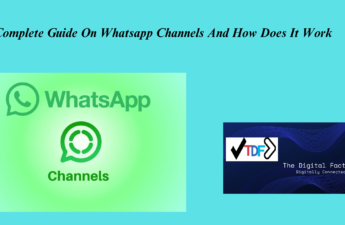Introduction:
In the ever-evolving world of SEO, keyword research remains the cornerstone of a successful content strategy. However, sifting through vast amounts of data and identifying high-potential keywords can be a time-consuming and tedious process. ChatGPT is a large language model (LLM) with the potential to revolutionize how we approach keyword research.
This article explores the capabilities of ChatGPT for SEO keyword research, analyzing its strengths, and limitations, and how it can be integrated into your existing workflow.
The Power of ChatGPT for Keyword Research:
ChatGPT boasts several features that make it a compelling tool for keyword research:
- Natural Language Processing (NLP): ChatGPT can understand and respond to search queries in a human-like manner. This allows you to ask open-ended questions related to your target audience and niche, prompting it to generate relevant keywords and long-tail variations.
- Data Analysis and Insights: ChatGPT can analyze vast amounts of search data, uncover trends, identify user intent, and suggest related keywords with high search volume and low competition.
- Content Ideation: Based on your target keywords and audience insights, ChatGPT can generate content ideas that resonate with your target audience and address their search queries effectively.
Unleashing the Potential: How to Leverage ChatGPT for SEO:
Here are some practical ways to integrate ChatGPT into your SEO keyword research process:
- Brainstorming Seed Keywords: Feeling stuck on initial keywords? Provide ChatGPT with a broad topic related to your niche and ask it to suggest relevant keywords. You can then refine these suggestions further using traditional keyword research tools.
- Identifying Long-Tail Variations: Long-tail keywords are highly specific and often have lower competition. Prompt ChatGPT to generate long-tail variations based on your seed keywords. This can help you target a more precise audience with higher conversion potential.
- Understanding User Intent: Understanding why users search for specific terms is crucial for crafting effective content. Ask ChatGPT to analyze search queries related to your keywords and identify the underlying user intent. This will help you tailor your content to provide the information users are actively seeking.
- Content Cluster Development: ChatGPT can be a valuable asset in developing content clusters around your target topics. Provide it with a central keyword and ask it to suggest related subtopics and keywords. This helps build a comprehensive information hub that establishes your expertise and attracts organic traffic.
- Competitive Analysis: Gain valuable insights into your competitors’ keyword strategies. Provide ChatGPT with a competitor’s URL and ask it to identify the keywords they are targeting. Analyze this data to identify potential gaps in your keyword strategy.
Limitations and Considerations:
While ChatGPT offers exciting possibilities for keyword research, it’s essential to be aware of its limitations:
- Data Accuracy: ChatGPT’s output is based on the data it is trained on. Inaccurate or outdated data can lead to misleading keyword suggestions. It’s crucial to cross-reference its recommendations with established keyword research tools.
- Limited Search Intent Understanding: While ChatGPT can provide insights into user intent, it may not always accurately capture the nuances of complex search queries. Utilize your human expertise to refine its suggestions.
- Content Quality Assurance: ChatGPT-generated content ideas may require significant refinement to ensure accuracy, value, and adherence to SEO best practices.
The Future of Keyword Research: ChatGPT and Beyond:
The integration of AI-powered tools like ChatGPT holds immense potential for transforming keyword research. As LLMs become more sophisticated, we can expect even more advanced features, such as:
- Real-Time Search Trend Analysis: Imagine receiving instant updates on emerging search trends and keyword popularity. This would allow for highly dynamic and responsive SEO strategies.
- Personalized Keyword Recommendations: LLMs could personalize keyword suggestions based on your specific website, content goals, and target audience demographics.
- Integrations with Existing SEO Tools: Seamless integration of ChatGPT with established keyword research tools would create a powerful one-stop shop for all your SEO needs.
Conclusion
ChatGPT is a valuable new tool in the SEO arsenal. While it shouldn’t replace traditional keyword research methods, it can significantly enhance the process by streamlining brainstorming, uncovering hidden insights, and providing creative content ideation. As AI continues to evolve, ChatGPT represents a glimpse into the future of keyword research, empowering SEOs to unlock the full potential of their content strategies.
Follow THE DIGITAL FACT. Get all the latest updates on SEO, Business, Technology, Trends, and much more.
Some Key Takeaways:
Remember:
- Leverage ChatGPT’s strengths in NLP, data analysis, and content ideation.
- Remain aware of limitations like data accuracy and the need for human oversight.
- Integrate ChatGPT with your existing workflow to streamline research and content creation.
By embracing this innovative tool, you can gain a competitive edge in the ever-changing world of SEO.




